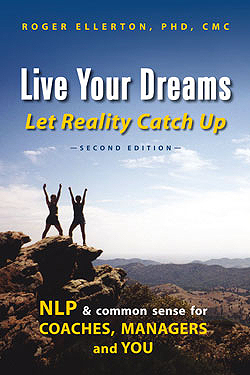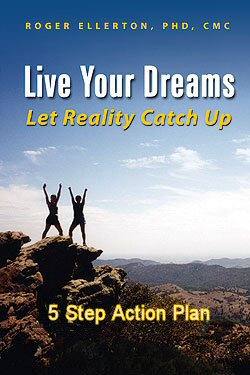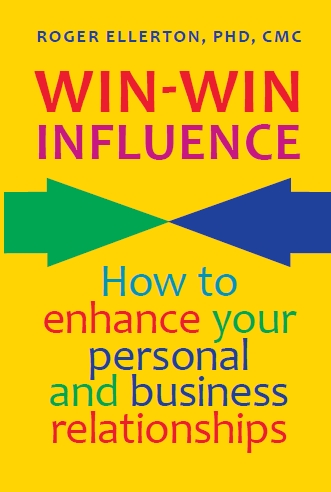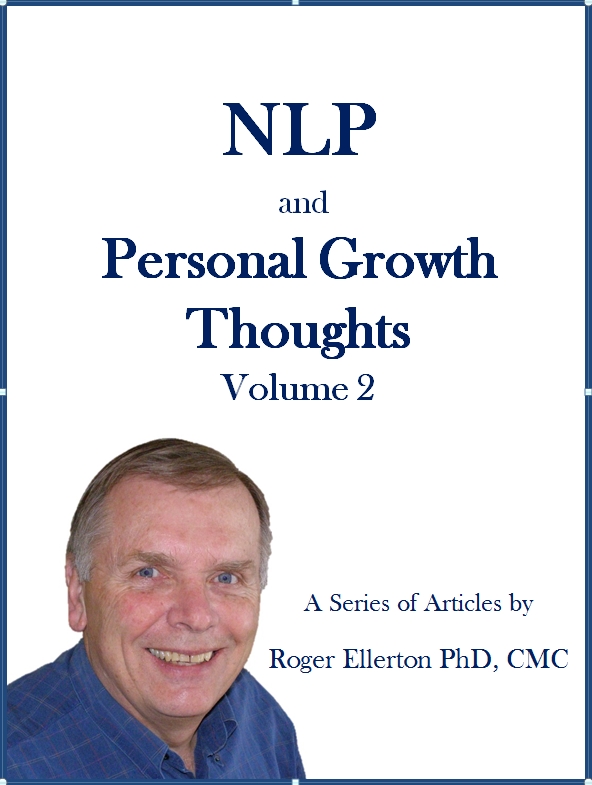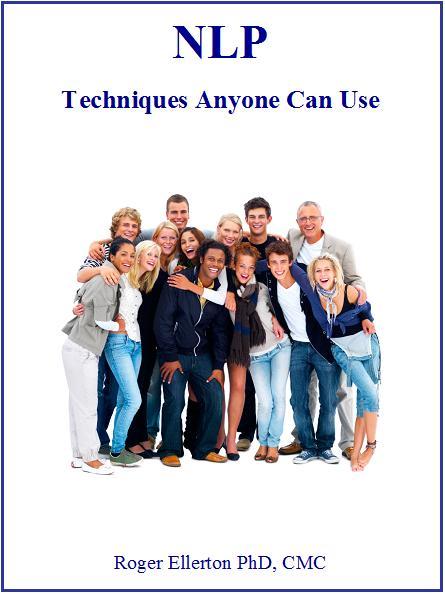The Five Steps for Success
By Roger Ellerton Phd, ISP, CMC, Renewal Technologies Inc.
This article may not be republished without written permission from Roger Ellerton/Renewal Technologies Inc. If you republish this article without permission, you will be in violation of copyright law and sent an invoice. You may share this and other pages with your friends by linking directly to this page from your website or blog.
1. Have an Outcome (Goal).
You should have an outcome for everything you do. Choosing to do nothing or to wander through life is an outcome - realize you chose it and ask yourself 'How well is this outcome serving me?' When you do not have something specific to achieve, there are many other people who do and how often do you find yourself helping them to achieve their outcome! When this happens, you may feel taken advantage of or blame the other person. Or perhaps you should realize that you chose that path and in doing so created the ensuing results. There is no one to blame. Be conscious of the choices you are making in your life and the consequences (rewards) that arise.
What is your outcome for reading this article? If it is to simply read this article - congratulate yourself, you are on your way to achieving it! Or you may wish to consider the following outcome: Find at least one idea in this article that if you were to adopt it today, it would change your life for the better.
When you are ready, why not set other outcomes that you would like to achieve, in the areas of health, relationships, career, family ... ?
2. Take Action
Many people with a clear outcome do not take action to achieve it. How many times have you heard a friend (or even yourself) talk passionately about building/achieving something or taking a special trip and yet, they never fully commit to it and it remains, but a dream.
For illustration purposes, suppose my outcome is to travel to Toronto (about 440 kms west of Ottawa, where I live) this weekend to enjoy the restaurants and night life. Unless I take action, such as getting in my car and driving to Toronto (or taking the bus, train or airplane); this will remain an outcome that I would like to achieve next week, next month, next year, ... .
3. Use Your Sensory Acuity
You need to pay attention and have some form of measure to know whether or not you are making progress towards our outcome. Or, maybe you have already achieved it or are going in the wrong direction.
Turning to our example of spending an enjoyable weekend in Toronto, assume I am driving along the highway of life, when a signpost appears which says 'Quebec City 30 kms' (Quebec City is about 460kms EAST of Ottawa!). I can notice this piece of information or as many of us do - choose to ignore it and continue on my journey. Have you ever done that? I know I have when I have not been paying attention to what is important to me and what is happening in my life!
4. Be Flexible
Some of us actually see the signposts of life and choose not to admit we need to change course, behaviours, etc.
In our example, I can choose to notice that I have driven 400 kms in the wrong direction and hope that if I persist long enough in this one direction, everything will eventually work out. Or I can become aware of the signpost and decide to explore what other options are available to me - turn around at the next interchange and head for Toronto, drive to Quebec City and take an airplane to Toronto or choose to spend the weekend in Quebec City and enjoy its restaurants and nightlife.
5. Take on a Physiology and Psychology of Excellence
Recall from the article NLP Communication Model II that your thoughts (internal representations) affect your physiology and your physiology affects your thoughts. In your mind, you should have thoughts (pictures, sounds, feelings, tastes and smells) of achieving your outcome, while adopting a physiology of having already achieved it.
This reminds me of a true story told to me by a student in one of my classes. He had a friend who, after graduation from college, wanted to be an executive in a financial institution. After graduation, the best job he could find was in the mailroom in a financial institution. This did not deter him at all. Every day, he showed up for work in a suit and tie and carried himself as if he were already an executive - for in his mind, he was an executive, who just happened to be getting a little experience in the mail room. Do you think he was noticed? You bet! Do you think he advanced in the financial institution - YES! A couple of years later, management recognized what he knew all along and officially appointed him an executive in the financial institution.
Final Thoughts
Taking one, two, three or four of these steps is just not good enough. What use is it to have an outcome if you do not take action? Nor is it useful to take action if you are not paying attention to the results you are creating. How often have you missed achieving something important by not being flexible? And then you wonder why your life is the same today as it was yesterday, last month or last year. And the dreams you have dreamed are still just dreams.
Author: Roger Ellerton is a certified NLP trainer, certified management consultant and the founder and managing partner of Renewal Technologies. The above article is based on his book Live Your Dreams Let Reality Catch Up: NLP and Common Sense for Coaches, Managers and You. For more detail on each of the above five steps, please see Live Your Dreams Let Reality Catch Up: 5 Step Action Plan.
Copyright © 2003, Renewal Technologies Inc. All rights reserved.

